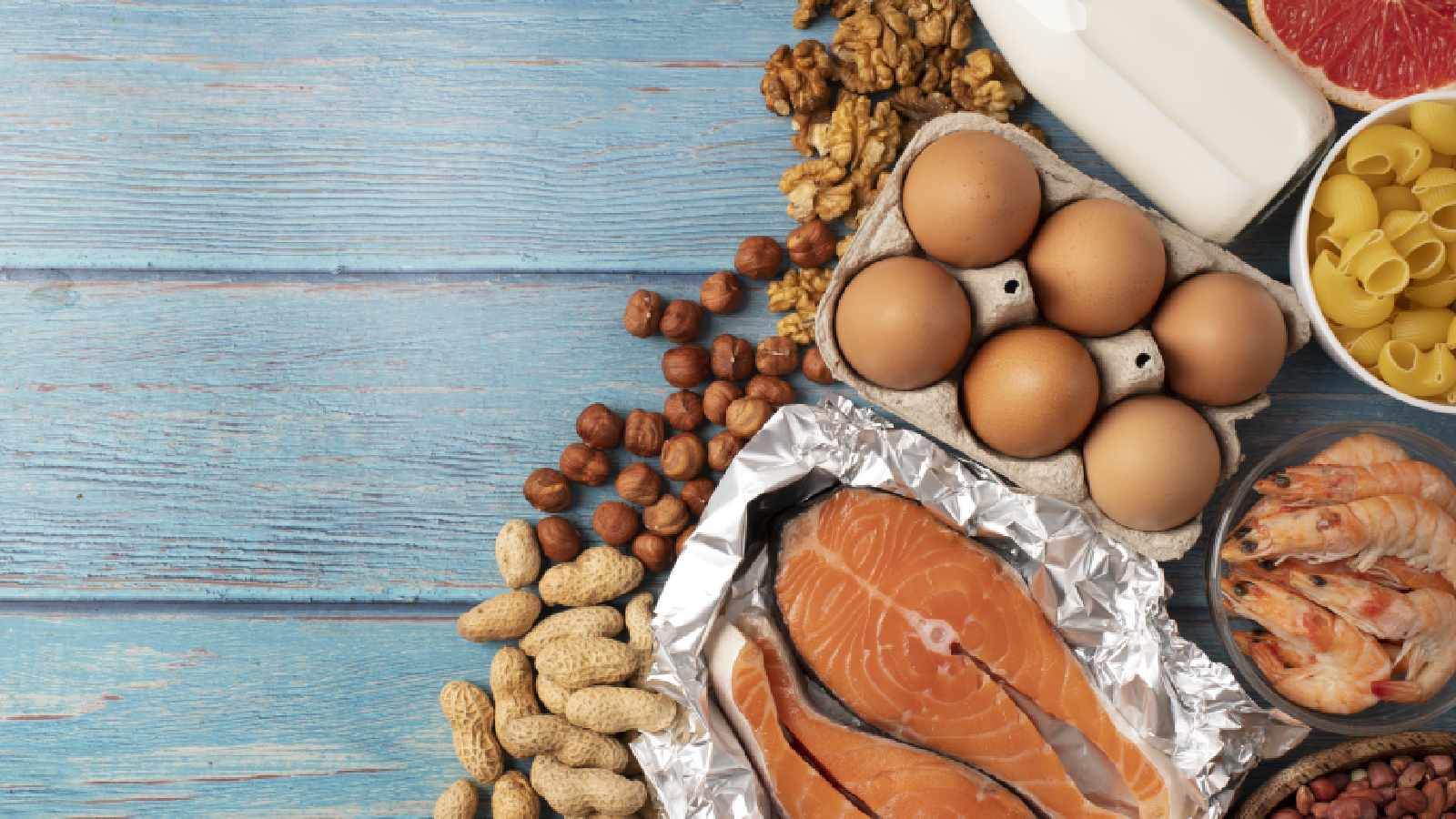Protein is essential for the proper functioning of our body. But can too much protein cause constipation? Let’s find out.
Protein is the basic requirement of the human body. It is necessary for tissue growth and repair, making it crucial for the maintenance of muscles, organs, skin and hair. Furthermore, proteins play a fundamental role in the production of enzymes, hormones and antibodies. These are essential for metabolic processes, immune function and general health. However, too much protein can also cause problems. People tend to follow a high-protein diet when they are on a fitness mission. But can too much protein cause constipation?
What is protein?
Protein is a macronutrient made up of amino acids, often referred to as the building blocks of life. These amino acids are essential for several bodily functions, including muscle repair, growth and overall cellular function, says nutritionist Tanya Mehra.
- Non-vegetarian sources include meat, poultry, fish, eggs and dairy products such as milk, cheese and yogurt.
- Vegetarian protein sources They include beans, lentils, tofu, nuts, seeds and grains like quinoa.
How much protein do we need?
The recommended dietary allowance is just 0.8 grams of protein per kg of a person’s weight per day, as per Harvard Health Publishing. However, some people, such as athletes or those recovering from illness or injury, may need a higher protein intake, says the expert. Excessive protein consumption, typically more than 2 grams per kg of body weight per day, can put stress on the kidneys and potentially lead to health problems including constipation over time.
How does eating too much protein cause constipation?
An April 2024 study published in Neurogastroenterology and Motility The journal found an association between dietary protein intake and an increase in constipation defined by the risk of stool consistency in participants who had a low carbohydrate intake.
Foods rich in protein, especially proteins of animal origin, such as meat, poultry and dairy products, tend to have a low fiber content, which is essential for maintaining regular bowel movements, says the expert. Fiber is basically a type of carbohydrate found mainly in legumes, vegetables, fruits and whole grains, according to the Centers for Disease Control and Prevention.
Additionally, excessive protein intake can lead to dehydration if not balanced with adequate fluid intake, further contributing to constipation. Some individuals may also experience digestive discomfort or bloating when consuming large amounts of protein, which can worsen constipation symptoms.
Can protein shakes or protein bars cause constipation?
Protein shakes or bars can cause cold, especially if they are low in fiber and consumed in excess, says Mehra. Many commercially available protein supplements are highly processed and may lack the fiber and nutrients found in whole foods. Additionally, some protein powders contain artificial sweeteners or additives that can disrupt digestion in sensitive individuals. Choosing protein supplements made with natural ingredients and combining them with fiber-rich foods can help prevent constipation.

How to prevent constipation if you are on a high protein diet?
Preventing constipation while following a high-protein diet involves ensuring adequate hydration and fiber ingestion.
- Drinking plenty of water throughout the day helps soften stools and promote bowel regularity.
- Incorporating fiber-rich foods such as fruits, vegetables, legumes and whole grains into your meals can aid digestion and prevent constipation.
- Regular physical activity also supports healthy bowel function by stimulating intestinal motility.
When to see a doctor?
If constipation persists despite dietary modifications, it is advisable to consult a doctor for further evaluation and guidance. Persistent constipation may be indicative of underlying health problems that require medical attention, such as intestinal obstruction, irritable bowel syndrome, or gastrointestinal disorders. A doctor can evaluate individual symptoms, recommend appropriate treatment options, and provide personalized dietary advice to treat constipation related to a high-protein diet.
Protein-rich foods can cause constipation if you eat mostly protein-rich meat. Make sure to balance it with fiber-rich foods to prevent constipation.
Select the topics that interest you and let us personalize your feed.


